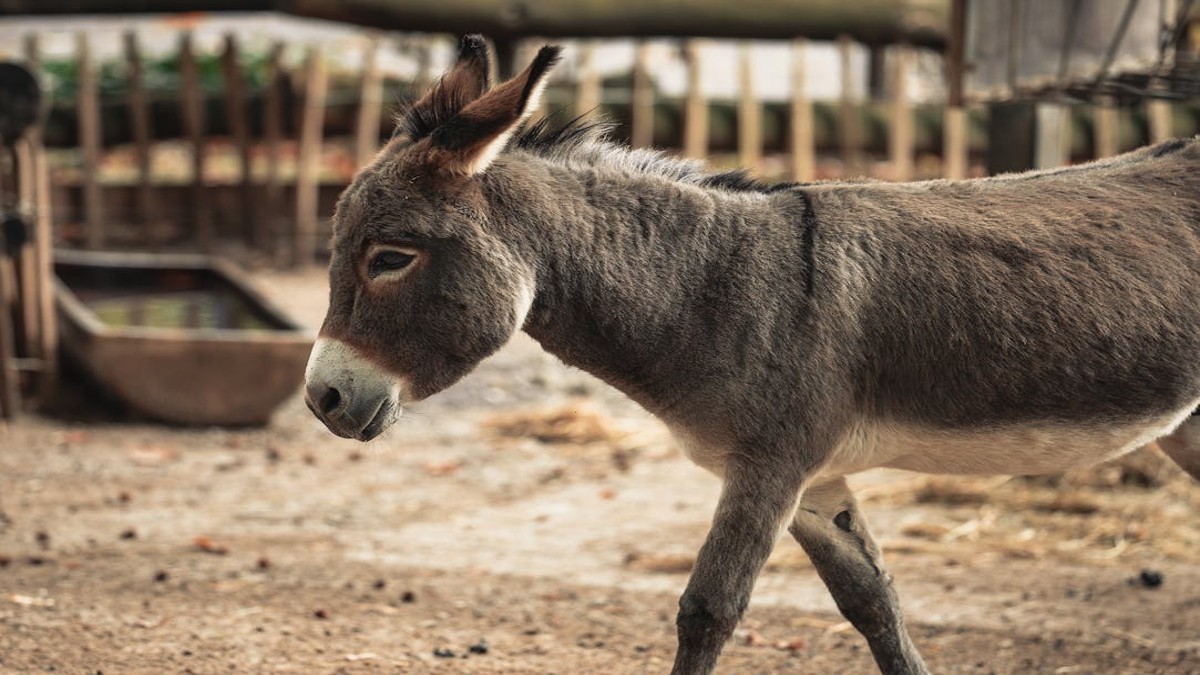Donkeys have been casually used as an analogy for struggle.
But, in the milk industry today, its milk is the new white gold.
The latest donkey milk revolution is being led in Gujarat by Dhiren Solanki, who sells its milk at 70 times the price of milk produced by its bovine rivals.
Here’s all we know about it.
Gujarat man sells donkey milk
According to NDTV, Dhiren Solanki, who owns a farm in Patan district with 42 donkeys, reportedly earns between Rs 2-3 lakh a month by selling this valuable milk to clients in southern regions.
With an initial investment of Rs 22 lakh with just 20 donkeys about eight months ago, Solanki has grown to be a business that is worth crore.
For the first five months, Solanki struggled to turn a profit because there was not much of a market for milk in Gujarat.
After that, he made the decision to grow his reach in South India, where there was a greater need for donkey milk.
Currently, he provides Karnataka and Kerala, and some of his clients are cosmetics firms that use milk from donkeys.
Donkey milk is marketed for a staggering Rs 5,000 to Rs 7,000 per litre, according to Solanki, compared to cow milk, which sells for Rs 65 per litre. The milk is kept in refrigerators to preserve its freshness.
Impact Shorts
More ShortsThe reason it is so expensive
According to Healthline, although it is growing in popularity, the majority of farms are small, with five to 30 milking jennies.
Only roughly four cups (one litre) of milk are produced daily by each.
As a result, the milk is somewhat expensive and difficult to get, making it an exclusive item.
It can now be found easily as powered milk that has been freeze-dried.
Benefits of donkey milk
Donkey milk has been around for more than 10 thousand years. However, it has made a major comeback in recent times due to its numerous health benefits that surpass its nutritional value and cosmetic uses.
In the past, it was common to use it to feed infants, and the Egyptian queen Cleopatra even enjoyed it.
According to News18, which cited the National Library of Medicine (NLM), she was said to have bathed in donkey milk to preserve her skin’s radiance. Legend says 700 donkeys were needed to provide her with the amount of milk necessary for the routine.
As per NLM, “Donkey milk is believed to eliminate wrinkles from the skin of the face and make it softer and whiter. Some women are known to treat their cheeks seven times a day, paying close attention to this number. It was Poppea, wife of the Roman emperor Nero, who started this fashion, making use of it even for the baths and for this reason, she brought along herds of donkeys when she travelled.”
Donkey milk shares several nutritional similarities with cow’s milk and human breast milk. Along with protein, it offers vitamins, especially vitamin D, and minerals.
According to Healthline, it has less fat and calories, the majority of which come from carbohydrates in the form of lactose, the sugar in milk.
Whey, which makes up the majority of the protein in donkey milk, contains substances that may help stop some bacteria and viruses from growing.
Many people with a cow’s milk protein allergy may consume donkey milk because of its lower casein level, as they find that donkey milk doesn’t trigger an allergic reaction.
According to a 2019 Italian study that was published in the NLM journal, all 81 children with cow’s milk allergies were able to drink donkey milk without experiencing any adverse effects. It was possible to gain regular weight and height by substituting donkey milk.
Lactose, which aids in the body’s absorption of calcium—a mineral necessary for strong bones—is another vital component in donkey milk.
Donkey milk can enhance the release of cytokines, which are proteins that boost the immune system, according to a 2010 laboratory study. The study adds that the milk also causes cells to produce nitric oxide, a compound that helps dilate blood vessels and improves blood flow to reduce blood pressure.
Downsides
But there are times when consuming animal milk is not helpful.
According to a 2022 study that was published in the World Journal of Clinical Paediatrics, cow’s milk causes a range of systemic and gastrointestinal issues in people of all ages with different underlying causes.
According to Indian Express, which quoted nutritionist and integrated health coach Karishma Shah, as saying, “Animals have hormones. These external hormones when go into our bodies create disruptions within the hormonal system, sometimes even contributing to disorders like thyroid, and PCOS, which are governed by them.”
Dietician Shradha Singh of Regency Hospital advices that drinking animal milk in moderation is the key.
“There’s no established recommendation due to the lack of research on long-term effects. However, one should always consult a dietician or a doctor for accurate guidance,” she told the newspaper.
Singh further cautions against experimenting if you are lactose intolerant, pregnant, or breastfeeding because the milk’s safety is not well established.
Furthermore, donkey milk can affect blood sugar levels due to its high lactose content. Thus, if you have diabetes, it is best to speak with a physician.
The process of pasteurisation, which uses heat to kill unsafe bacteria, raises additional questions about donkey milk. The risk of infection is increased with unpasteurized milk. Therefore, Healthline advises seeking for pasteurised donkey milk if you’d like to try it in liquid or powder form.
With inputs from agencies


)

)
)
)
)
)
)
)
)



